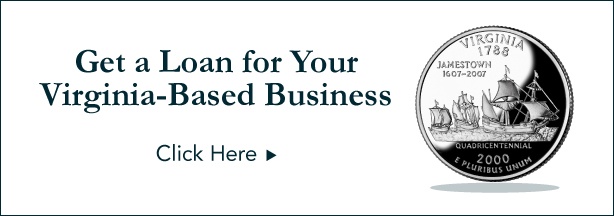January 13, 2022
How to Get a Small Business Loan in Virginia
If you are a part of a small business in the Old Dominion state or have plans to launch one, you may need to take advantage of small business loans to cover a variety of expenses. In this blog post, we'll take a closer look at small business loans in Virginia.

What to Do With a Small Business Loan in Virginia
No matter where you are in your small business journey, small business loans in Virginia can be useful. They can help you cover startup expenses, such as equipment, incorporation fees, taxes, and payroll. If your operation has been around for quite some time, a small business loan may be just what you need to take your venture to the new heights. It can help you expand your offerings or open up new locations in Virginia or other states.Types of Small Business Loans in Virginia
When you explore small business loans in Virginia, you’ll find no shortage of options at your disposal. Note that the lender and type of loan you choose will determine the eligibility requirements and application process.Traditional Bank Loans
Also known as term loans, traditional bank loans can be found at banks, credit unions, and online lenders. As long as you have good credit, you may land a term loan with a low rate and favorable terms. You’ll need to repay it over time via fixed monthly payments over an agreed upon term, which may range from several months to several years or even longer.Working Capital Loans
Working capital loans are just what they sound like: loans designed to cover working capital or short-term expenses that allow you to operate. With a working capital loan, you may pay for the cost of everyday expenses such as monthly bills, payroll, and repairs. This option can help you manage cash flow and is ideal if you’re a seasonal business.
SBA Loans
SBA loans are small business loans that are partially guaranteed by the SBA, a federal organization that supports small businesses. While they can be difficult to obtain, SBA financing options are often worth the long application process because of their low rates and lengthy repayment terms. You can use them to cover expenses such as:- Startup costs
- Working capital
- Real estate
Commercial Mortgage
A business mortgage or commercial mortgage can help you purchase property or land for your business. Compared to residential mortgages, commercial mortgages come with variable interest rates. They are usually offered by commercial mortgage brokers or lenders directly.Equipment Financing
Equipment loans offer capital for the purchase of new or used equipment. Equipment may include anything you need to run your business, like machinery, technology, and vehicles. You’ll repay them over time with interest payments. The equipment itself will serve as collateral, meaning if you default on your loan amount, the lender will seize it.Lines of Credit
Lines of credit are a lot like credit cards with higher borrowing amounts. You can withdraw money as you need to up to a set credit limit, which will depend on your credit and other factors. If you don’t know exactly how much funding your business requires, the flexibility of a line of credit is ideal.Business Credit Cards
There is no shortage of business credit cards on the market. If you open one, you can easily fund everyday expenses. Depending on the credit card you choose, you may also earn rewards like cash back, gift cards, and travel perks. Some business credit cards also offer a 0% introductory offer, which can help you find large expenses without having to pay interest.Invoice Factoring
With invoice factoring, you sell your invoices to a factory company at a discounted price. In return, you'll receive a lump sum of cash for your business. Then, the factoring company will collect payments from your customers, often within 30 to 90 days. Invoice factoring should be on your radar if your customers tend to pay late and stall your operations or growth initiatives.Resources for Virginia Business Owners
If you own a small business in Virginia, these resources may be useful.- Business One Stop: Business One Stop strives to promote entrepreneurship in Virginia. Once you pay the one time registration fee, you’ll receive the tools and resources you need to plan, develop, and expand your business. Over 33,000 businesses in the state have taken advantage of Business One Stop.
- Opportunity Southwest Virginia: This organization supports the efforts of entrepreneurs in Southwest Virginia. It offers a variety of grants and tools such as templates that can help you write a business plan and start your venture.
- Small Business Development Center (SBDC): SBDC offers free, confidential counseling to small business owners in Virginia. Most of these centers can be found at colleges throughout the state such as Southwest Community College and Mountain Empire Community College.
- VA Startup: VA Startup provides training programs to help entrepreneurs hone their skills and network with other business owners. It partners with a number of organizations like Virginia Tourism Corporation ,Virginia Small Business Development Network, and Virginia Community Capital.